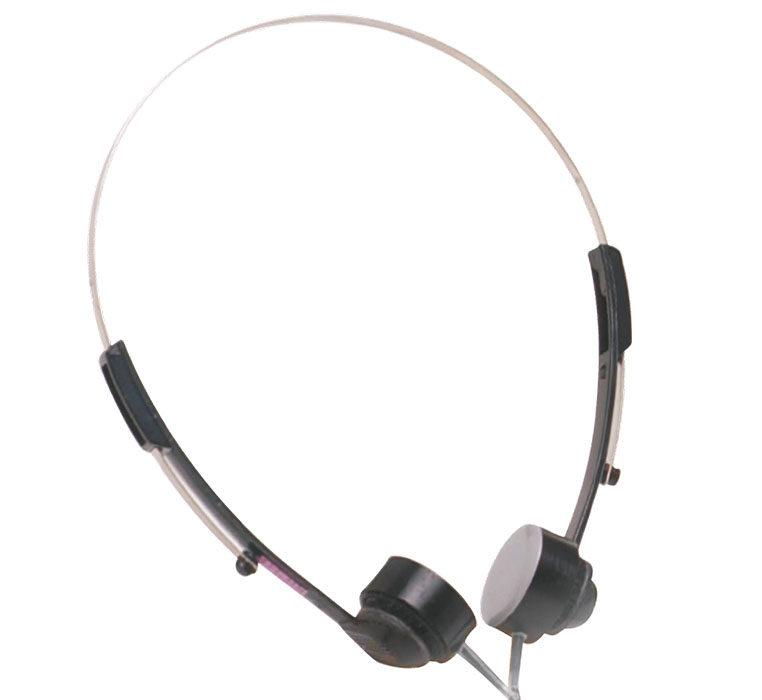Joint Vibration Analysis (JVA)
Parkwood Dental Associates is proud to offer Joint Vibration Analysis (JVA) for patients with jaw pain and associated symptoms. JVA provides a fast, non-invasive, and reliable measurement of TMJ function to aid in the diagnosis of TMJ problems.
As part of every dental exam at Parkwood Dental Associates, Dr. Todd Sander examines the patients’ face and TMJ’s to see if there are any clicks, pops, or tightness associated with opening and closing the mouth. The temporomandibular joint (TMJ) is one of the most complex joints in the body. Like all human joints, the TMJ has surfaces which rub together when you chew, swallow or speak. Smooth, well-lubricated surfaces within the joint produce little friction and little vibration. But if the joint surface changes because of degeneration, disk displacement or injury, jaw movement will produce friction and vibration.
Occasionally, a patient will have clicks and/or pops during the examination. Thankfully, most clicks and pops may have been happening for years and do not causing any discomfort to the patient. However, some patients will report discomfort and require a much more detailed follow-up examination. Different TMJ disorders produce different vibration patterns. With Joint Vibration Analysis (JVA), Dr Sander can identify these vibration patterns to distinguish among the various TMJ disorders. This allows for proper TMJ treatment.
When two smooth, well lubricated surfaces rub together, friction is minimal and very little vibration is created. If the surfaces are rough and/or poorly lubricated, friction is greater and the result is vibration (more roughness + poor lubrication = more vibrations).
Human joints, such as the TMJ, have naturally very smooth and well lubricated articulating surfaces. Under normal conditions, little vibration is produced during function. But surface changes, such as those caused by degeneration, cartilage tears, perforations, and mechanical displacements, increase friction and result in vibrations.
Joint Vibrational Analysis records the vibrations made by joint tissues during movement. JVA technology, based on that used in US Navy submarines, records vibrations, not sounds. All sounds are vibrations, but not all vibrations are sounds. The JVA is much more accurate than palpation, a stethoscope or even the patient self-reports, when it comes to recording vibration in the joints. The patterns and the electronic signature of your joints are compared to known standards for healthy joints. This technology also provides important objective (factual) documentation so vitally important in personal injury lawsuits and for filing insurance claims. The JVA allows us to monitor the TMJ over time and track potential joint degeneration and other problems associated with the jaw joint to prevent damage or progression of joint diseases. Many times progression of the disease process can be treated with something as simple as a NTI which is specifically designed to reduce muscular strain on the joint.
How does it work?
 Joint Vibrational Analysis (ADA approved) is equipment that measures how well the joint functions while in motion. All other images such as MRI, X-rays or even Cine MRI’s are only static pictures of the joints in certain positions. This is accomplished by placing headphones over the joints and recording the vibrations of either soft tissue (quiet, when disc is working properly) or bone on bone grinding (gravel sounding). Today most experts feel that this device is mandatory when determining what position the mandible should be placed in therapy. It is imperative to find this “best” position possible for the patient before treatment begins. Short of an MRI, this is the ideal objective proof of what is happening to the joint as it functions, and dramatically less expensive and timely compared to an MRI.
Joint Vibrational Analysis (ADA approved) is equipment that measures how well the joint functions while in motion. All other images such as MRI, X-rays or even Cine MRI’s are only static pictures of the joints in certain positions. This is accomplished by placing headphones over the joints and recording the vibrations of either soft tissue (quiet, when disc is working properly) or bone on bone grinding (gravel sounding). Today most experts feel that this device is mandatory when determining what position the mandible should be placed in therapy. It is imperative to find this “best” position possible for the patient before treatment begins. Short of an MRI, this is the ideal objective proof of what is happening to the joint as it functions, and dramatically less expensive and timely compared to an MRI.
The JVA is one of the advanced services provided at Parkwood Dental Associates that few other dentists in the area provides. It allows for a better understanding of our patient’s dental needs. If you’re experiencing any symptoms, please call Dr. Todd Sander for an appointment at (843) 571-6795.


